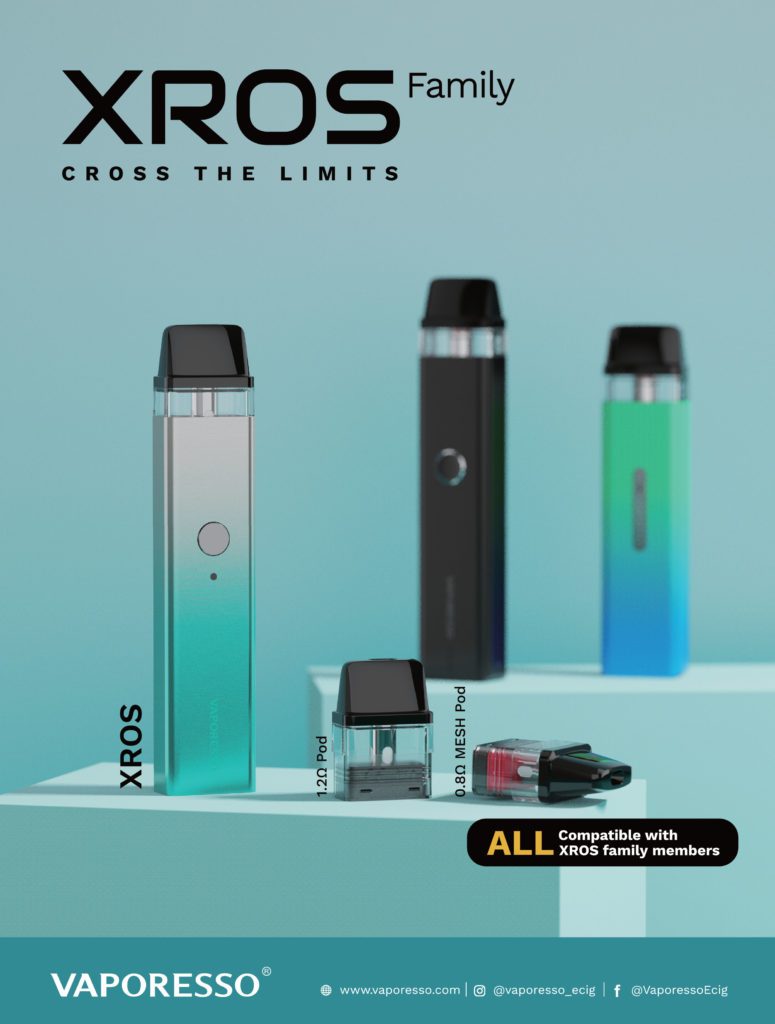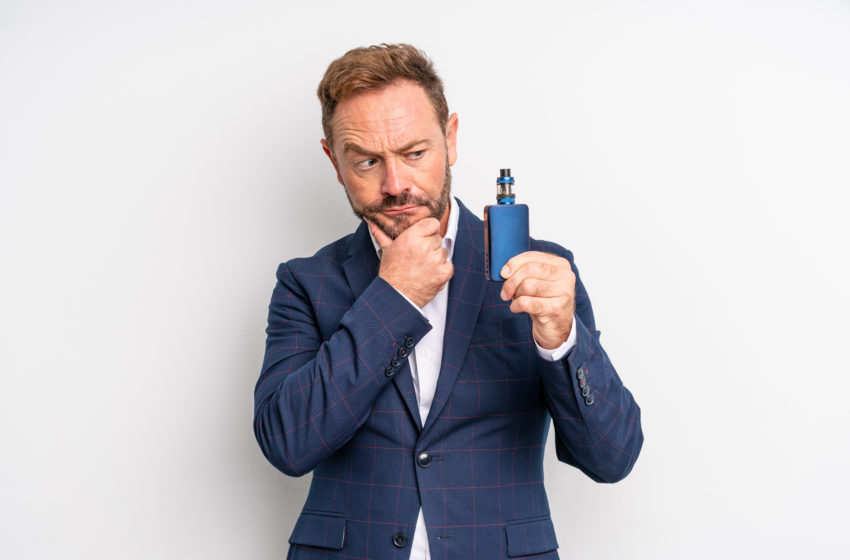
By George Gay
I love the following heading, which heralded a recent Taiwan News story: Over 40 percent of Taiwanese vapors unaware e-cigarettes may contain nicotine.
I mean, if vapors have reached a level of consciousness that has allowed them to dabble in the concepts of awareness and unawareness, and to articulate, for instance, an unawareness to researchers, they need to be accorded rights. Regulators need to engage with these vapors before, for instance, removing flavors from them.
It cannot be right to take such action without holding a consultation, difficult as that might be with what, after all, would be a somewhat ethereal interlocutor. We can only hope that if regulators fail in this duty, a good lawyer will step forward and mount what would have to be a pro bono challenge on behalf of vapors.
I suppose I shouldn’t laugh at the heading. I often make the vapors/vapers error while typing, and it is only through the eagle eyes of my proofreader wife that these errors get corrected. But the heading struck another chord. What does it say about more than 40 percent of vapers in Taiwan, and, I assume, fairly large proportions of vapers in other places, that they happily consume something of which, to an important extent, they are ignorant? And what happens during a visit by such a vaper to one of those doctors who wrongly believes that nicotine in the amounts inhaled during vaping is dangerous? Imagine the confusing consultation if you will.
Doctor: Ah, there you are. Come in, take a seat.

Patient: Thank you.
Doctor: No, no, leave it where it is, just sit on it; and for goodness’ sake, leave your clothes on.
Patient: Sorry.
Doctor: Now, firstly, let’s talk about your smoking.
Patient: I don’t smoke anymore.
Doctor: You don’t? Well done. How did you give up?
Patient: I switched to vaping.
Doctor: Dear me, that’s no good. Nicotine is dangerous and addictive.
Patient: Vapes don’t include nicotine.
Doctor: They don’t? Oh well, I was going to prescribe these nicotine patches, but I guess you won’t be needing them.
Patient: But I thought you said nicotine was dangerous and addictive.

Doctor: I did? Yes, you’re right. Excuse me, I seem to be a little confused. Perhaps I need to step outside for a smoke. Care to join me? These are really low nicotine cigarettes as “recommended” by the U.S. Food and Drug Administration.
Patient: Is that right? Well, in that case, I don’t mind if I do.
Doctor: By the way, how’s the back pain?
Patient: I don’t have any since I started taking the opioids you prescribed.
Doctor: Splendid. Do you want a drink with that?
It makes you wonder how extensive such ignorance is in other fields and in other places. How many times do some people have to pick themselves off the floor before they realize wine contains alcohol? And how many fits of the giggling munchies do some people have to experience before they realize marijuana contains tetrahydrocannabinol … well, before they realize it contains stuff that makes you a bit silly—a bit sillier.
In defense of the 40 percent or more of vapers, it has to be said that in most jurisdictions, vaping devices would be regulated as a consumer product and so vapers would probably assume that, like in the case of much of the food they eat, they don’t have to delve into things too deeply. In addition, the immediate effect of vaping with nicotine would be far more subtle than the effects of drinking wine or smoking marijuana, so perhaps they could be forgiven their ignorance. And, in any case, I always thought there were effects for which it would be very difficult, if not impossible, to identify a cause.
But perhaps I was wrong, and it is always possible to get to the bottom of things. Take a look at what is my favorite heading so far this year: Study links smoking by grandfather to women’s body fat. This is not a joke—at least I don’t think it is. I guess there wasn’t room in the heading for the “s” that would have rendered the grandfather plural and taken some of the guilt off his shoulders. Poor chap; it seems so unfair. I wonder who he was?

“Now researchers believe they have pinpointed higher body fat in females with grandfathers or great-grandfathers who began smoking before the age of 13,” said The Guardian story of Jan. 22. I’m not sure what the word “pinpointed” is supposed to mean here, but it suggests to me an accuracy of linkage (given the heading) that cannot possibly be right, especially given the equivocations of the next sentence but one (with my emphasis added). “The research suggests exposure to substances can lead to changes that may be passed through the generations, though the team [at Bristol University] say more work is needed to confirm this and understand how it may happen.’
I’m not sure whether one of my grandfathers was a smoker (the other took snuff), because I never met him, but I guess I can work back and say probably not because none of his granddaughters or his great-granddaughters was fat. Certainly, none of his three daughters was fat, something the researchers might like to put down to the fact that the daughters’ grandfather did not smoke while young. I would suggest a more likely and direct cause was that their father was killed during WWI, and while his widow managed to feed their daughters well, there was never the sort of excess of food that would render a young person fat, leading to her being fat in later life.
Smoking might not be good for you, but it doesn’t “kill,” and expending effort trying to trace its effects through multiple generations strikes me as a waste of time, partly because smoking is dying out. Additionally, you cannot, as far as current knowledge has it, go back in time and alter the behavior of your grandfather or great grandfather, and, given that smokers are not moved by the grotesque health warnings they are exposed to and that threaten terrible consequences being visited upon them in the near future, it seems unlikely they are going to quit because of the possibility their smoking might or might not lead to their female grandchildren or great-grandchildren becoming fat. Being shot by a sniper does kill, and the effects of such a death are immediately tragic and not hard to trace, so I think we would be better off trying to research how we can prevent pointless conflicts.
But I digress. Let me take a look at another story, this one on the BMJ website, entitled “Should e-cigarettes be licensed as medicines?” Perversely, I was attracted to this one because I have a dislike of headings that ask questions. I mean, I don’t believe in keeping a dog and barking myself. On this occasion, however, my eye was drawn to an introduction that read, “As the U.K. announces support for medicinal licensing of e-cigarettes, Nicholas S. Hopkinson argues that this will give doctors another means to help smokers quit. But Jorgen Vestbo, Andrew Bush and Jonathan Grigg say that its benefit is unproved and that harms are likely.”*
What I found intriguing here was the statement attributed to Vestbo, Bush and Grigg making the point that “its [medicinal licensing of e-cigarettes’] benefit is unproved.” Given that later in the piece these three, under the name of Vestbo, write, “[n]o country in the world [like there are countries not of this world] other than the U.K. has licensed e-cigarettes as drugs …,” it seems to be obvious that the benefit of medicinal licensing could not have been proved. This is especially so given that, as far as I am aware, no “e-cigarette” has been given a medical license in the U.K.
So this is the dangerous-precedent/slippery-slope-type of thinking that, if it had been ingrained in humans from the beginning, would have meant we would never have ventured outside our caves to look for food, with the inevitable result that we would have died out. Now you possibly think that might have been no bad thing, and I would not entirely disagree with you.

But we are where we are, and, in my view, medicinal licensing needs to be given a chance. The idea that the U.K. is to try medicinal licensing, providing manufacturers want to go down that route when other countries are not, provides a fantastic opportunity to test fully whether such a system is beneficial. The U.K. will be going head-to-head with countries that won’t introduce medical licensing; so, by comparing the results it achieves with those from otherwise “similar” countries, useful conclusions could be drawn.
In fact, we are currently in a situation whereby, to my way of thinking, we can set the world up as a giant quit-smoking laboratory. We can study the relative performances, in whichever way is thought best, of the U.K. with its medicinal licensing of e-cigarettes and acceptance of combustible cigarettes; New Zealand with its introduction of a smoking endgame along with its acceptance of e-cigarettes; and India with its ban on e-cigarettes but not on traditional cigarettes.
OK, I can imagine that some people might complain that what I am suggesting would raise ethical concerns to do with using people as a means to an end rather than as ends in themselves, but the “experiments” would involve only observations of what was being caused to happen, independent of the observers.
It cannot be denied that there are potential benefits to what the U.K. is proposing. For one thing, as Hopkinson points out, medically licensed devices have the potential to be more effective than consumer devices because they can be made available in strengths greater than those permitted for consumer products.
Additionally, Hopkinson points out, the fact that devices would go through a medical licensing process “should provide further reassurance to healthcare professionals that they can help their patients to quit smoking in this way, particularly in mental health settings where smoking rates remain high.”
And he makes the point that the introduction of e-cigarettes that have been through a stricter medicinal licensing process is likely to improve confidence among smokers who so far have been reluctant to try this approach.

That last point does raise a question about whether some smokers would baulk at being treated as patients in need of medical devices, but what I like overall about Hopkinson’s piece was its positive approach. There was a spring in his step such that even when he wrote of other tools being available for smoking cessation, those tools were such as to support smokers to make the switch.
On the other hand, the piece by Vestbo, Bush and Grigg seemed to my way of thinking to be negative, though I would urge you to read it for yourself, or yourselves if there is more than one person still reading this piece. There was no spring in the step and, when it came to other tools available for smoking cessation, the propositions were not about support but about punishment. The three wrote of an “arsenal of evidence-based tools, such as further increases in taxation and decreased availability, that can further reduce smoking prevalence with far less risk of known—and unknown—adverse health effects.”
Why is it that such people believe smokers should be subjected to restrictions not imposed on others, many of whom also indulge in risky behaviors? I could probably understand their position if the extra taxes they call for were ringfenced for use in supportive quit schemes, but they are not. They go into general revenue where they are used to pay for things that benefit the wider public. Perhaps nonsmokers need to think about declaring an interest when they call for additional taxes on smokers.
*Nicholas S. Hopkinson, professor of respiratory medicine and chair of Action on Smoking and Health (U.K.); Jorgen Vestbo, professor of respiratory medicine; Andrew Bush, professor of pediatrics and pediatric respirology and the European Respiratory Society’s guidelines director; and Jonathan Grigg, professor of pediatric respiratory and environmental medicine and chair of the European Respiratory Society’s tobacco control committee.












 The Association of Convenience Stores (ACS), a U.K.-based retailers group with more than 33,500 members, has launched a new guide to help retailers with the sale and supply of e-cigarettes and other vaping products.
The Association of Convenience Stores (ACS), a U.K.-based retailers group with more than 33,500 members, has launched a new guide to help retailers with the sale and supply of e-cigarettes and other vaping products.






